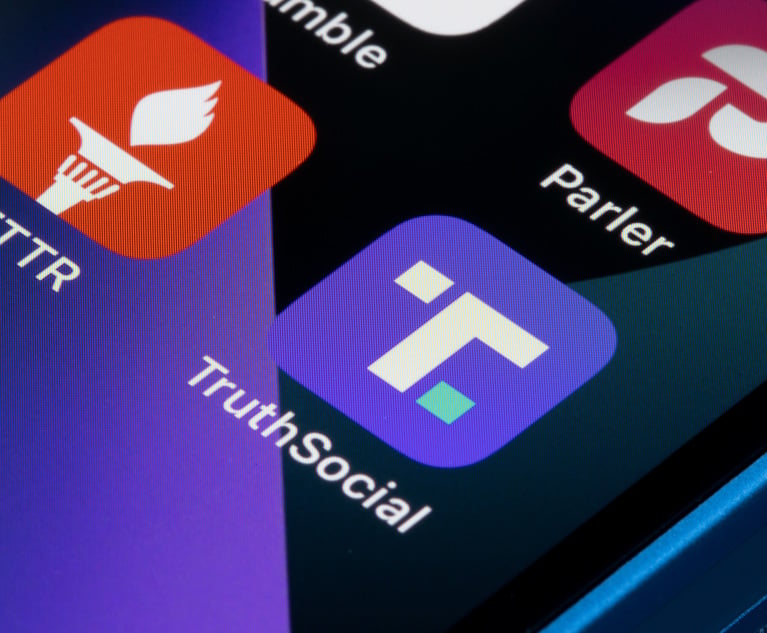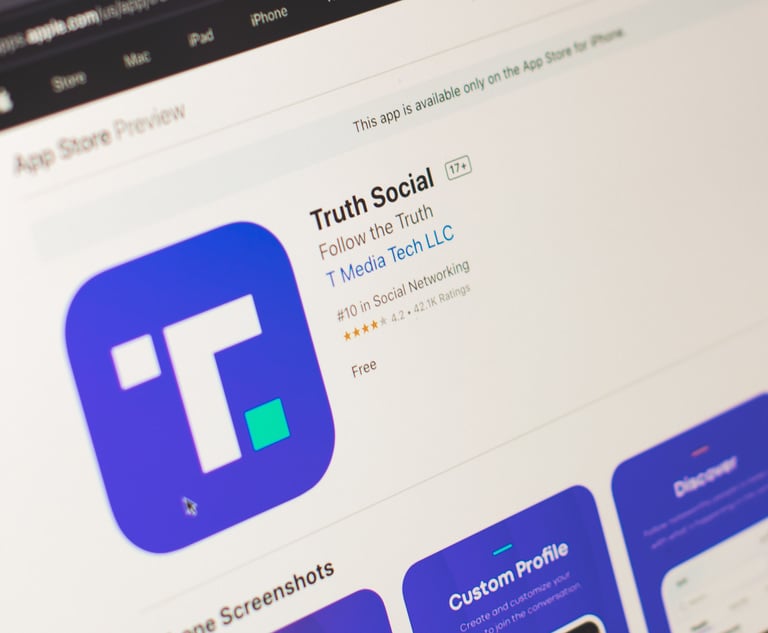SAG-AFTRA Influencer Agreement and Waiver: Considerations for Brands and Practitioners
It has been almost one year since SAG-AFTRA introduced the Influencer Agreement and the Waiver. During this time, it has become evident that there is room for improvement.
March 25, 2022 at 02:30 PM
7 minute read
 Influencer marketing is expected to reach $16.4 billion in 2022. "Influencers" are individuals who create content and share it through their social media platforms to influence the opinion and/or purchasing decisions of their social media following. Brand marketers currently dedicate a significant portion of their clients' advertising budget to influencer-related marketing. For years, the legal framework governing the collaboration between influencers, advertisers and brands has been comparable to the Wild Wild West, presenting multiple legal challenges to navigate.
Influencer marketing is expected to reach $16.4 billion in 2022. "Influencers" are individuals who create content and share it through their social media platforms to influence the opinion and/or purchasing decisions of their social media following. Brand marketers currently dedicate a significant portion of their clients' advertising budget to influencer-related marketing. For years, the legal framework governing the collaboration between influencers, advertisers and brands has been comparable to the Wild Wild West, presenting multiple legal challenges to navigate.
In 2017, the Federal Trade Commission (FTC) issued its "Guides Concerning the Use of Endorsements" to encourage clear and truthful influencer advertising. Prior to the FTC compliance policies, influencers were not required to disclose to consumers whether they actually liked a particular product, or simply received compensation to promote the product. However, the FTC Endorsement Standards only respond to one of the many challenges that influencer-related advertising presents for brands, advertisers, and the influencers themselves.
Further, social media use itself presents legal challenges for influencer advertising. For example, the use of third-party content without permission, although encouraged by the mechanics of social media platforms, is explicitly prohibited in influencer advertising. The unauthorized use of third-party intellectual property, including photos, videos, and other content that includes third-party trademarks, copyright protected material, and other proprietary rights, exposes influencers and brands to liability. Consequently, brands have been encouraged to narrowly draft influencer agreements and social media campaign terms to ensure protections against reckless influencer actions.
This content has been archived. It is available through our partners, LexisNexis® and Bloomberg Law.
To view this content, please continue to their sites.
Not a Lexis Subscriber?
Subscribe Now
Not a Bloomberg Law Subscriber?
Subscribe Now
NOT FOR REPRINT
© 2025 ALM Global, LLC, All Rights Reserved. Request academic re-use from www.copyright.com. All other uses, submit a request to [email protected]. For more information visit Asset & Logo Licensing.
You Might Like
View All
Trump Media Accuses Purchaser Rep of Extortion, Harassment After Merger
4 minute read
'Rampant Piracy': US Record Labels File Copyright Suit Against French Distributor Believe
5 minute read
'A Serious Crime': Venture Capitalist Sentenced to Prison for Trump-SPAC Insider Trading
Law Firms Mentioned
Trending Stories
Who Got The Work
J. Brugh Lower of Gibbons has entered an appearance for industrial equipment supplier Devco Corporation in a pending trademark infringement lawsuit. The suit, accusing the defendant of selling knock-off Graco products, was filed Dec. 18 in New Jersey District Court by Rivkin Radler on behalf of Graco Inc. and Graco Minnesota. The case, assigned to U.S. District Judge Zahid N. Quraishi, is 3:24-cv-11294, Graco Inc. et al v. Devco Corporation.
Who Got The Work
Rebecca Maller-Stein and Kent A. Yalowitz of Arnold & Porter Kaye Scholer have entered their appearances for Hanaco Venture Capital and its executives, Lior Prosor and David Frankel, in a pending securities lawsuit. The action, filed on Dec. 24 in New York Southern District Court by Zell, Aron & Co. on behalf of Goldeneye Advisors, accuses the defendants of negligently and fraudulently managing the plaintiff's $1 million investment. The case, assigned to U.S. District Judge Vernon S. Broderick, is 1:24-cv-09918, Goldeneye Advisors, LLC v. Hanaco Venture Capital, Ltd. et al.
Who Got The Work
Attorneys from A&O Shearman has stepped in as defense counsel for Toronto-Dominion Bank and other defendants in a pending securities class action. The suit, filed Dec. 11 in New York Southern District Court by Bleichmar Fonti & Auld, accuses the defendants of concealing the bank's 'pervasive' deficiencies in regards to its compliance with the Bank Secrecy Act and the quality of its anti-money laundering controls. The case, assigned to U.S. District Judge Arun Subramanian, is 1:24-cv-09445, Gonzalez v. The Toronto-Dominion Bank et al.
Who Got The Work
Crown Castle International, a Pennsylvania company providing shared communications infrastructure, has turned to Luke D. Wolf of Gordon Rees Scully Mansukhani to fend off a pending breach-of-contract lawsuit. The court action, filed Nov. 25 in Michigan Eastern District Court by Hooper Hathaway PC on behalf of The Town Residences LLC, accuses Crown Castle of failing to transfer approximately $30,000 in utility payments from T-Mobile in breach of a roof-top lease and assignment agreement. The case, assigned to U.S. District Judge Susan K. Declercq, is 2:24-cv-13131, The Town Residences LLC v. T-Mobile US, Inc. et al.
Who Got The Work
Wilfred P. Coronato and Daniel M. Schwartz of McCarter & English have stepped in as defense counsel to Electrolux Home Products Inc. in a pending product liability lawsuit. The court action, filed Nov. 26 in New York Eastern District Court by Poulos Lopiccolo PC and Nagel Rice LLP on behalf of David Stern, alleges that the defendant's refrigerators’ drawers and shelving repeatedly break and fall apart within months after purchase. The case, assigned to U.S. District Judge Joan M. Azrack, is 2:24-cv-08204, Stern v. Electrolux Home Products, Inc.
Featured Firms
Law Offices of Gary Martin Hays & Associates, P.C.
(470) 294-1674
Law Offices of Mark E. Salomone
(857) 444-6468
Smith & Hassler
(713) 739-1250







